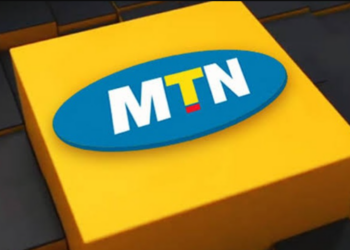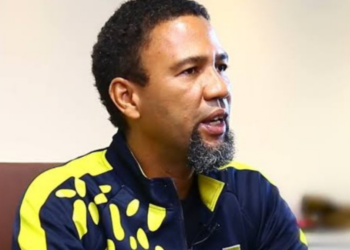MTN is not only the largest telecommunications company on the NSE, but it is also the second-largest by market capitalization on the bourse. With a whopping N2.4 trillion in market capitalization and other subsidiaries in other countries like Côte d’Ivoire, Sudan, Benin, and Cameroon, the telco is well on its way to becoming a legacy name.
MTN’s recent reports are no different. Its Q2 results revealed that its total revenues rose by 8.5% to N308.9 billion, driven largely by higher data revenues – amidst Covid-19’s headwinds. Yet it’s not that the company is increasing its revenue that’s amazing; it’s how it makes it.
READ: Dangote Sugar Refinery: Revenue soars amid rising cost of sales
MTN’s revenue is broken down into 8 streams comprising revenue lines like voice, data SMS, digital, and others. As expected, its top money-spinners are the voice and data revenue streams. Having attained a huge market share in voice, data, and Interconnect and roaming, it appears that MTN has its eye on another market. Its revenue from FinTech and digital services had amounted to a total of 20.7 billion in Q1 2020 compared to N16.8 billion in Q1 2019. The figure was attained by adding the total digital revenue as well as value-added services which are made up of airtime lending and mobile money (FinTech), subscriber identification module (SIM) back up services, and voice-based services.
In Q2 2020 as well, the company attained a total of N19.1 billion in the same space, growing 15% in the quarter. While we cannot determine the size of the entire FinTech and digital services market, we can infer that MTN has a huge chunk in it.
READ: FirstBank and Azuri partner to bring solar to millions and deepen financial inclusion in Nigeria
The Nigerian FinTech market
The Nigerian FinTech landscape is an expanding one. Research by Frost and Sullivan reveals that Nigeria’s FinTech revenue is expected to reach $543.3 million in 2022 from the $153.1 million it attained in 2017. One of the main reasons for its growth is that transactions in Nigeria have increasingly been moving towards mobile as a result of the growing popularity of mobile technology within the population and particularly the unbanked.
The number of mobile money transactions increased around 14 times to 217.8 million as of September 2019 from 15.9 million in 2013. In addition, data from the Nigerian Communications Commission (NCC) places broadband penetration in Nigeria at 35.1% as of August 2019 (2018 – 31.5%) and this is forecasted to climb to 55.0% by 2025 according to Jumia’s mobile market report for 2019. No doubt, it’s a huge market.
READ MORE: Nigerian fintech companies need to urgently address one issue
As a result of the growth opportunities, Nigeria’s FinTech industry has seen funding rounds from various global investors in 2019. While it might be hard to accurately determine the many different companies in the sector owing largely to structural limitations, there are a few top names like Interswitch, Flutterwave, and Paga. Unfortunately, none of them are quoted on the Nigerian Stock Exchange, making the size of their business hard to accurately assess. What this also means is that they have limited access to finance – save for the lucky few that obtain grants, and are inherently limited.
Is MTN a rising monopoly?
MTN’s monthly revenue of N100b as revealed in its latest financials places it as one of the largest in the country. While it is amazing that the company is expanding its reach and diversifying to reach the full extent of its growth, its expansion into the FinTech landscape could stifle other smaller businesses in that space and it could lead to a form of mega monopoly within the financial services sub-sector.
READ: No trophy for International Breweries after bland Q2 results
As a result of the difference in size, the possibility that there would be any form of competition for the rising giant is very low. Existing FinTech companies might not have a fair opportunity to attain material portions of the market and might ultimately be forced to shut down operations or move to markets that have not been proliferated by large companies like this.
The disadvantages range from the possibility of higher prices to just the nonchalance and lack of innovation that the lack of competition could birth in the monopoly. In the United States and other advanced countries, there are antitrust laws that guard against monopolies. In Nigeria, such control measures do not exist, making smaller companies at the mercy of the larger ones to give them a fair playing field.
Explore financial calculators on Nairametrics
Without the development of these laws, we would soon start witnessing the acquisition of smaller players and once again, monopolies and oligarchies will dominate yet another thriving sector like banking and insurance. That said, the developments in the sector will have MTN’s shareholders at the winning end of the game in no time.




















Lawrette thanks for this piece. The Fintech space requires significant capital and reach to crack.
How far have the smaller players developed the market and the ecosystem in the last 6yrs? Many of them would do much better with if afforded the resources.
The market needs the big players and the resources they bring to the table.
I think massive M&A opportunities would follow and benefit the economy and everyone
Thx
Well done Lawretta Egba for this beautiful piece.
While I agree with your description of MTN’s sheer size, the fear of stifling competition within the fintech space may not be totally correct.
Nigeria is already a late comer within the fintech space, particularly when you consider the level of market maturity in Ghana, Kenya and other East African countries. So clearly we need an organization that can quickly accelerate the growth of the industry. And that is why you will see that other telcos are also yearning to play within the space.
Like you also alluded, the unstructured nature of the fintech market, makes it difficult to clearly define the role/ influence of MTN within the industry.
Perhaps, we should be encouraging the big players like MTN to even play more active role ( with government encouragement), in accelerating the potential of the fintech space, so as to minimize the catch btw Nigeria and the rest of the world.
Thank once again for bring forward such an interesting conversation